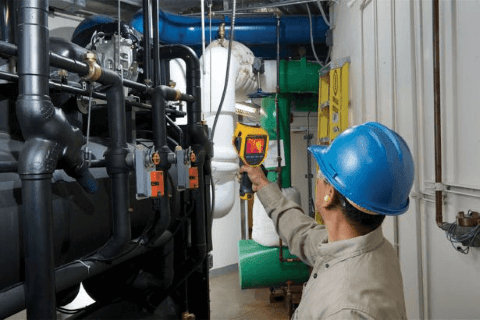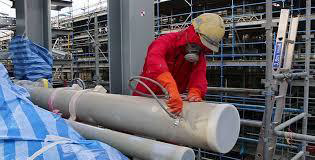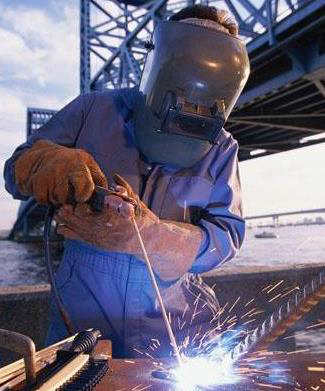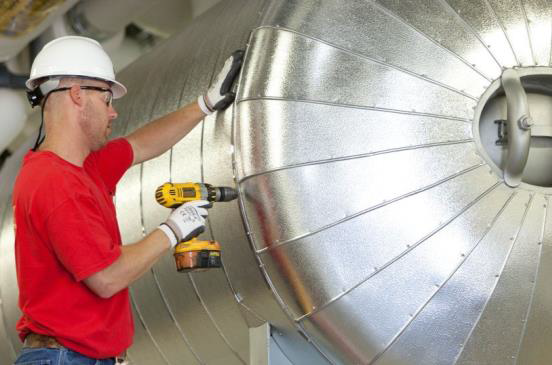COURSE OVERVIEW
FE0986 : Basic Thermography & Thermal Imaging Reports (ASNT, SNT-TC-1A)

OVERVIEW
| COURSE TITLE | : | FE0986 : Basic Thermography & Thermal Imaging Reports (ASNT, SNT-TC-1A) |
| COURSE DATE | : | Aug 04 - Aug 08 2024 |
| DURATION | : | 5 Days |
| INSTRUCTOR | : | Mr. Luis Lopez |
| VENUE | : | Al Khobar, KSA |
| COURSE FEE | : | $ 6000 |
| Request For Course Outline | ||
OTHER SCHEDULED DATES
| Date | : | May 13 - May 17 (5 Days) | Location | : | Abu Dhabi, UAE | Classroom Fee (US$) | : | $ 6000 | Course Info |
| Date | : | Nov 03 - Nov 07 (5 Days) | Location | : | Dubai, UAE | Classroom Fee (US$) | : | $ 6000 | Course Info |
Course Description
This practical and highly-interactive course includes various practical sessions. Theory learned will be applied using thermal imaging infrared cameras. This course will provide participants the advanced concepts and principles of Thermal/Infrared Testing (IR) as per the ASNT Recommended Practice No. SNT-TC-1A for Personnel Qualification and Certification in Nondestructive Testing. Infrared thermography technique which is non-contact, nondestructive test method uses an infrared imaging to detect, display and record thermal patterns and temperature across the surface of an object. Thermography can be applied to any situation where thermal profile and temperature will provide meaning data about a system or object. It is equipment which senses infrared radiation by converting it into temperature and displays image of temperature distribution. During this interactive course, participants will learn the checking of equipment calibration with blackbody references; the infrared image and documentation quality; supporting data collection and detecting thermal anomalies resulting from differences in thermal resistance (quasi-steadystate heat flow); detecting thermal anomalies resulting from differences in thermal capacitance, using system or environmental heat cycles; detecting thermal anomalies resulting from differences in physical state, fluid flow problems and friction; detecting thermal anomalies resulting from nonhomogeneous exothermic or endothermic conditions; and the field quantification of point temperatures covering simple techniques for emissivity, typical high emissivity applications and special problem of low emissivity applications. link to course overview PDF
TRAINING METHODOLOGY
This interactive training course includes the following training methodologies as a percentage of the total tuition hours
LecturesWorkshops & Work Presentations
Case Studies & Practical Exercises
Videos, Software & Simulators
In an unlikely event, the course instructor may modify the above training methodology before or during the course for technical reasons.
VIRTUAL TRAINING (IF APPLICABLE)
If this course is delivered online as a Virtual Training, the following limitations will be applicable
| Certificates | : | Only soft copy certificates will be issued to participants through Haward’s Portal. This includes Wallet Card Certificates if applicable |
| Training Materials | : | Only soft copy Training Materials (PDF format) will be issued to participant through the Virtual Training Platform |
| Training Methodology | : | 80% of the program will be theory and 20% will be practical sessions, exercises, case studies, simulators or videos |
| Training Program | : | The training will be for 4 hours per day starting at 09:30 and ending at 13:30 |
| H-STK Smart Training Kit | : | Not Applicable |
| Hands-on Practical Workshops | : | Not Applicable |
| Site Visit | : | Not Applicable |
| Simulators | : | Only software simulators will be used in the virtual courses. Hardware simulators are not applicable and will not be used in Virtual Training |
RELATED COURSES

FE0011 : Metallurgy, Corrosion, Damage Mechanisms, Failure Investigation & Remaining Life Assessment
- Date : Nov 04 -Nov 07 / 3 Days
- Location : Dubai, UAE
- Course Details Register

FE1002 : Coating Inspection
- Date : Dec 09 -Dec 13 / 3 Days
- Location : Abu Dhabi, UAE
- Course Details Register

FE0930 : API 577: Welding Inspection and Metallurgy (API Exam Preparation Training)
- Date : Nov 10 -Nov 15 / 3 Days
- Location : Al Khobar, KSA
- Course Details Register

FE0018 : Thermal Insulation for the Mechanial Systems
- Date : Nov 04 -Nov 07 / 3 Days
- Location : Dubai, UAE
- Course Details Register
